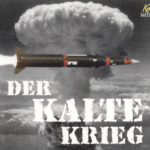Sperberauge
Gorbatschow meldet sich zu Wort
Michail Gorbatschow, der ehemalige Generalsekretär des Zentralkomitees der KPdSU und Staatspräsident der Sowjetunion, der mit Glasnost (Offenheit) und Perestroika (Umbau) die Politik der Sowjetunion umkrempelte und so das Ende des Kalten Krieges 1989/91 einleitete, ist mittlerweile 87 Jahre alt und körperlich etwas gebrechlich. Aber er beobachtet noch immer die geopolitischen Veränderungen und – wen wundert’s – macht sich Sorgen.
Jetzt hat er sich am «Center for Citizen Initiatives» in den USA wieder einmal an die Öffentlichkeit gewandt. In schriftlicher Form liegt seine Rede nicht vor, aber als Video mit Übersetzung aus dem Russischen ins Englische steht sie zur Verfügung.
Für Interessierte: hier anklicken.
Eben hat Michail Gorbatschow auch in der «Washington Post» einen eindrücklichen Aufruf erlassen:
«We participated in INF negotiations. Abandoning it threatens our very existence.»
By Mikhail Gorbachev and George P. Shultz
«More than 30 years have passed since the day the leaders of the United States and the Soviet Union, meeting in Geneva, adopted a joint statement declaring that “a nuclear war cannot be won and must never be fought.” It was more than just rhetoric. Less than a year later, in Reykjavik, Iceland, they agreed on the parameters of future treaties on the elimination of intermediate-range nuclear forces, or INF, and the radical reduction of strategic nuclear arms. A year after that, in 1987, the first of these treaties was signed in Washington. The elimination of the entire class of nuclear missiles opened the way to a process of real nuclear disarmament.
The INF Treaty and subsequent treaties reducing strategic nuclear arms established an innovative system of verification, inspections, data exchange and mutual consultations to ensure that each side can confidently verify that the other is faithfully adhering to the treaty limits.
Reykjavik was a historic milestone also because the leaders of the United States and the Soviet Union agreed that the ultimate goal of the process of nuclear arms reduction should be the elimination of all nuclear weapons. The path to this goal is inevitably difficult, but the mutual understanding between the two leaders has borne fruit: As of now, the strategic nuclear forces of the two sides have been reduced to a fraction of what they were then.
Another important result of the agreements was the emergence of mutual trust between the two nations, and a healthier international environment overall. This helped to resolve regional issues, facilitated democratic processes and improved the lives of people in many countries.
Over the past few years, relations between major powers have become more complex. There is a danger that the gains achieved in the process of ending the Cold War could be wiped out. Abandoning the INF Treaty would be a step toward a new arms race, undermining strategic stability and increasing the threat of miscalculation or technical failure leading to an immensely destructive war.
The answer to the problems that have come up is not to abandon the INF Treaty but to preserve and fix it. Military and diplomatic officials from the United States and Russia should meet to address and resolve the issues of verification and compliance. Equally difficult problems have been solved in the past once the two sides put their minds to it. We are confident this can be done again.
There is also a need for a broad strategic dialogue between the two countries’ officials, as well as experts, academics and veteran leaders and diplomats. We are calling for the creation of an informal forum of U.S. and Russian experts to address the changes in the security landscape that have occurred over the past decades — including missile defenses, precision conventional weapons, space systems, cyberthreats and the nuclear weapons of other countries. Those are formidable challenges that require both profound analysis and the joint efforts of the best minds of our nations.
We were both at Reykjavik and participated in the negotiations before and after that led to the first agreements. We understand that nuclear weapons raise difficult issues. But we are convinced the United States and Russia must resume progress on a path toward the eventual elimination of nuclear weapons. The alternative, which is unacceptable, is the continuing threat of those weapons to our very existence.»
December 4 2018
(Mikhail Gorbachev is a former president of the Soviet Union; George P. Shultz is a former U.S. secretary of state and is now a distinguished fellow at Stanford University’s Hoover Institution.)
Themenbezogene Interessenbindung der Autorin/des Autors
Keine.










Deren Worte in Gottes Ohr.
Und mit der Bitte weltweit zu verbreiten und übersetzen.
Das heutige dumme Feindbild gegenüber Russland Putin, und Andere, kommt einer „Perversion“ gleich. Nur im Dialog findet man zu- und miteinander. Wie der Text oben, deutlich beweist.
Frohe Festtag und FRIEDEN in der Welt. Kann doch möglich sein.